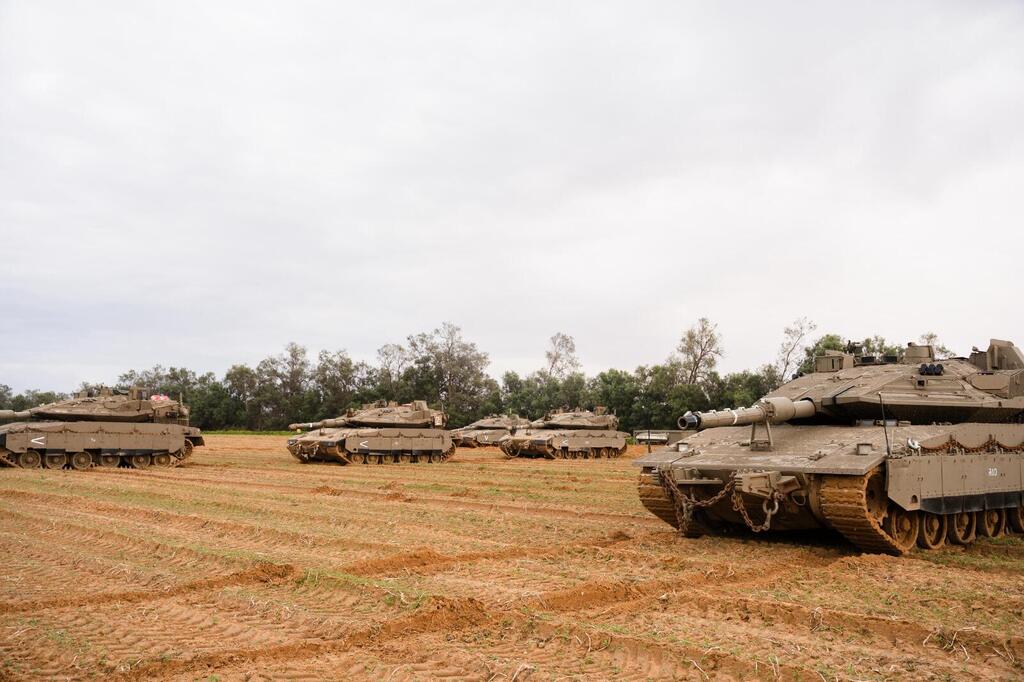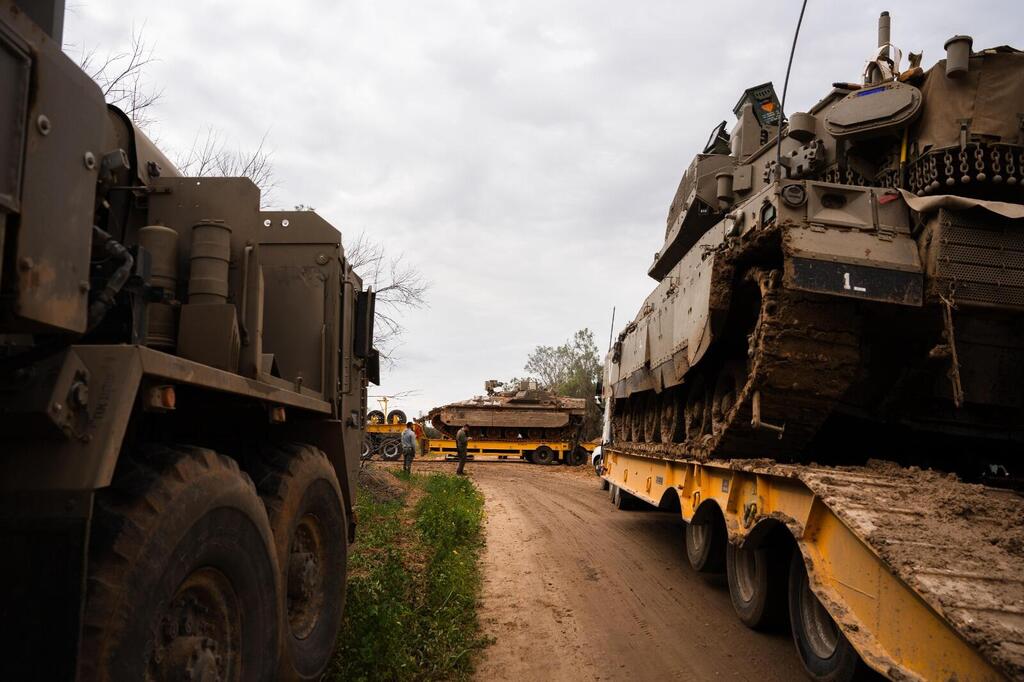Getting your Trinity Audio player ready...
Israel is intensifying its military pressure on Hamas and reinforcing forces in the south, even as behind-the-scenes mediation efforts continue in hopes of restoring a ceasefire framework that includes the release of hostages.
Israeli officials believe Hamas is interested in a deal but will likely demand guarantees from mediators regarding a full withdrawal of Israeli forces from Gaza, a substantial ceasefire and the resumption of humanitarian aid deliveries.
Israeli tanks amassing on the Gaza border
(Photo: IDF)
Egypt has stepped up its involvement and is expected to present a new mediation proposal based on the latest American initiative by U.S. special envoy Steve Witkoff.
The plan includes the release of five living hostages, among them Israeli soldier Edan Alexander, who also holds U.S. citizenship. Negotiations are also ongoing over a broader deal that would secure the release of all surviving hostages in exchange for an end to the war.
In an interview with Fox News, Witkoff accused Hamas of misleading him and emphasized that the United States is "100 percent" aligned with Israel, describing Hamas as the aggressor.
The remarks were widely seen as an attempt to correct impressions left by his earlier comments on the podcast of commentator Tucker Carlson, in which he appeared to entertain a more flexible stance toward Hamas.
On the podcast, Witkoff said he had told President Donald Trump that, contrary to common belief, Hamas is not ideologically rigid and, under certain conditions, could remain in Gaza as a political entity if it agrees to disarm.
The statement was not well received in Jerusalem, nor were Witkoff’s comments praising Qatar as a fair and stabilizing mediator not involved in the conflict.
During a meeting of the Security Cabinet, new IDF Chief of Staff Eyal Zamir outlined plans to maintain the logistical siege on Gaza and escalate military pressure on Hamas, aiming to secure the hostages’ release and achieve all stated war objectives.
Israeli officials assess that the United States will continue to support Israel’s military campaign, but not indefinitely. Washington still hopes to see a resolution to the Gaza problem as a prerequisite for normalization between Israel and Saudi Arabia — and potentially Lebanon and Syria as well.
4 View gallery


An IDF soldier looks toward Metula near the Lebanese border
(Photo: REUTERS/Avi Ohayon)
Following rocket fire on the northern border town of Metula over the weekend, Defense Minister Israel Katz said that “Metula will be treated like Beirut.” U.S. officials later conveyed opposition to escalation and urged Israel not to strike in Beirut.
Meanwhile, Israel has bolstered its forces in the south and resumed intensified aerial bombardments. On Saturday night, Hamas official Ismail Barhoum was killed, five days after his predecessor Essam al-Da’alis was eliminated.
<< Get the Ynetnews app on your smartphone: Google Play: https://bit.ly/4eJ37pE | Apple App Store: https://bit.ly/3ZL7iNv >>
IDF footage released afterward showed convoys of tanks and armored personnel carriers deploying in the south. The 36th Division began positioning for operations in the sector after months of activity in the north, joining the Gaza and 252nd divisions already active in the area.
According to The Washington Post, Israeli military planners say a full-scale invasion and occupation of Gaza would require as many as five divisions. The report also cited growing concerns among reservists over prolonged combat with no clear end in sight.
On Sunday night, Prime Minister Benjamin Netanyahu spoke with U.S. Secretary of State Marco Rubio. According to Netanyahu’s office, the two discussed regional developments, including efforts to free the hostages and the resumption of combat in Gaza. Rubio reiterated the United States’ unwavering support for Israel and its policies.
A statement from the U.S. side said Rubio spoke with Netanyahu “to reaffirm America’s support for Israel.” The secretary discussed Israel’s ongoing military operations in Gaza and efforts to secure the release of hostages. He also conveyed the Trump administration’s determination to restore freedom of navigation in the Red Sea, including through military operations against the Iran-backed Houthis.







